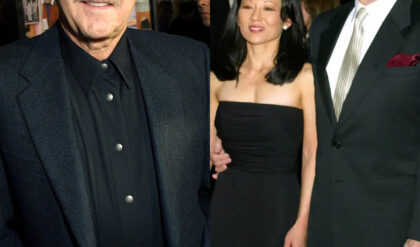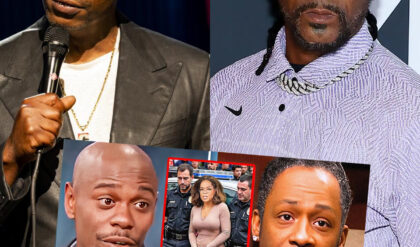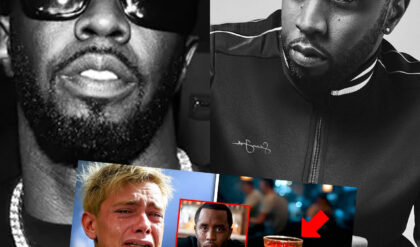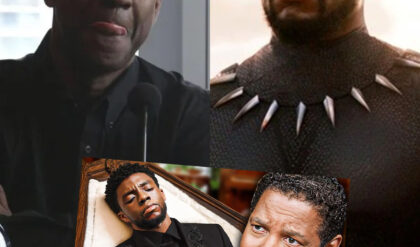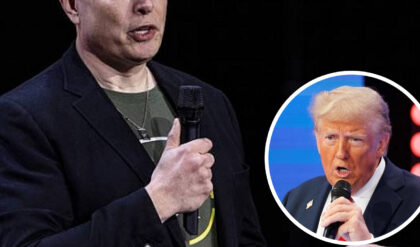Terrence Howard’s Joins Katt Williams & Exposes Why He Left Hollywood
Terrence Howard, a respected actor, has stepped into the spotlight by speaking out against what he perceives as a systematic effort within the entertainment industry to undermine black masculinity.
He has highlighted the issue of black actors being pressured to wear dresses in films, which has stirred up a longstanding controversy lurking beneath the surface of Hollywood.
This topic gained considerable traction when comedians like Cat Williams and actor Dave Chappelle first brought attention to it, sharing their own experiences of feeling coerced into wearing dresses on screen.
Initially dismissed as conspiracy theories, their claims have gained credibility as more voices, including Terrence Howard’s, have joined the conversation.
Howard’s recent outspoken remarks have illuminated the challenges that black actors face in an industry that often imposes narrow and stereotypical roles upon them.
By refusing to conform to these expectations and openly addressing the perceived agenda to feminize black men, Howard has sparked widespread discussion and debate.
The issue of black actors being pressured to wear dresses is not new. It dates back to at least the late 1990s when Eddie Griffin highlighted it in his comedy “Foolish.”
Griffin’s satire exposed the pressures faced by aspiring black comedians and actors to conform to Hollywood’s standards, even if it meant compromising their integrity.
Dave Chappelle’s revelation about being pushed to wear a dress alongside Martin Lawrence further escalated the controversy.
Chappelle’s decision to resist this pressure ultimately led to tensions on set and influenced his choice to walk away from a lucrative network deal.
With Howard’s recent statements reigniting this debate, discussions about the representation of black masculinity in Hollywood have resurfaced.
While some may view Howard’s claims skeptically, others see them as symptomatic of broader issues within the entertainment industry.
The prevailing notion that black actors must conform to certain stereotypes to succeed reflects entrenched cultural biases within Hollywood. This perpetuates harmful narratives and restricts opportunities for authentic representation.
Howard’s courage in challenging these industry norms and advocating for change has catalyzed much-needed conversations about diversity and inclusion in Hollywood.
By pushing back against the status quo, Howard is paving the way for future generations of black actors to demand better representation and opportunities in an industry that has often marginalized them.
In conclusion, Terrence Howard’s vocal stance on the dress controversy in Hollywood has brought vital attention to an issue that has long been overlooked.
His refusal to conform and his advocacy for change have sparked a broader dialogue about representation and diversity in entertainment.
While debates continue about whether there is a deliberate agenda to emasculate black men in Hollywood, one thing is clear: the industry must evolve, and the time for change is long overdue.
News
NEWS: Elon Musk vs. Taylor Swift and Imane Khelif….
Elon Musk vs. Taylor Swift and Imane Khelif: A power play reshaping the digital landscape. Who’s next? In a dramatic turn of events, Elon Musk has once again demonstrated the immense influence he wields over the digital world, sparking chaos…
NEWS: Primanti Bros Shuts Down Franchises….
Primanti Bros Shuts Down Franchises in Red States, Declares “That’s Not the America We Stand For” Primanti Bros, the well-known Pittsburgh-based sandwich chain, has made a controversial decision to close all of its franchises in red states, citing that “That’s…
NEWS: NFL’s Travis Kelce Announces He’s Leaving…
NFL’s Travis Kelce Announces He’s Leaving Elon Musk’s ‘Hate Machine’ X App, Calling It a ‘Toxic Waste Dump’ After Scathing and Hurtful Comments About… In a dramatic turn of events, NFL star Travis Kelce has announced his departure from Elon…
NEWS: ‘Wicked’ Co-Stars Ariana Grande and Cynthia….
EXCLUSIVE: ‘Wicked’ Co-Stars Ariana Grande and Cynthia Erivo’s Cringey Public Lovefests Branded a ‘Sham’ to Cover Up ‘Behind-Scenes Hatred’ The public lovefest between Ariana Grande and Cynthia Erivo is a Wicked lie. That’s the dirt being dished by industry insiders, who said the on-set tension between…
NEWS: Sylvester Stallone is served by a black waitress….
Black Waitress Serves Sylvester Stallone, Saw Note on Check, and Burst into Tears Reba McEntire in Roberto Cavalli, Lainey Wilson in Area Suit & More ACM Awards 2024 Red Carpet Arrivals, Live Updates Country’s biggest stars gathered on the 2024 Academy…
NEWS: Steph Curry, 36, FINALLY VERIFIES THE STORIES….
At 36, Steph Curry FINALLY Confirms The Rumors Steph Curry Addresses When His NBA Career Could Be Over Steph Curry and the Golden State Warriors will host LeBron James and the Los Angeles Lakers on Christmas in what will…
End of content
No more pages to load






